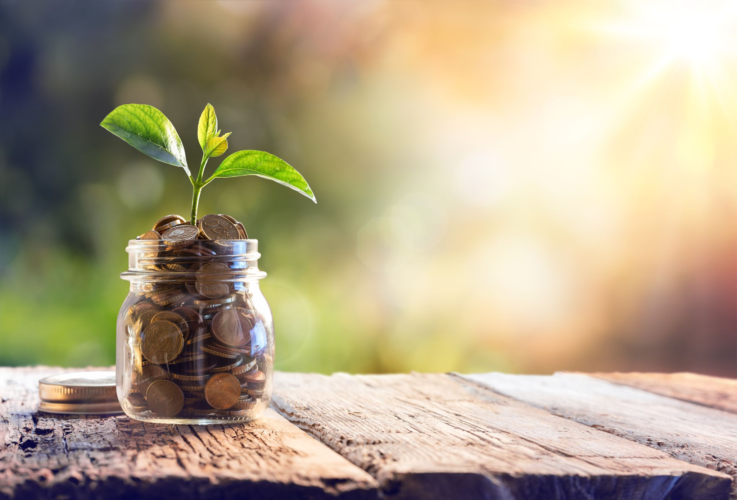Money Matters: 5 ways to save money by going green

shutterstock
Most people would agree that helping the environment is a noble cause. But, did you know that doing good for the planet can simultaneously do good for your wallet?
There are plenty of easy things you can do and simple habits you can change that will not only save you money but ultimately reduce your impact on the environment. You can start today with these five:
1. Do away with disposables
Nearly every disposable item has a reusable replacement. For instance, instead of buying rolls and rolls of paper towels, buy a few washable towels and rags. Instead of buying plastic water bottles, buy a reusable one. Instead of buying plastic soap dispensers, buy a glass dispenser that you can simply refill. Instead of bringing plastic utensils with your lunch, bring regular utensils and take them home to wash. You get the idea.
Reducing disposables is a great way to be kind to the planet, and you will save money by making one-time purchases instead of spending endlessly on refills.
2. Reduce energy use in the home
Just a few small changes of habit can reduce the amount of energy you use in your house while cutting your electricity bill in half. Here are some ways to cut back:
Reduce heating and AC: Try to adjust your thermostat based on the season and time of day so as to use as little energy as possible. In addition, when you are out of town, you can use even less energy. Consider getting a programmable thermostat that will make these adjustments automatically. To add further efficiency to your heating and cooling, be sure that windows and doors are insulated well.
Unplug unused devices and appliances: This is a common one to hear, but unplugging your unused devices and appliances can make a substantial difference in your energy use. Get in the habit of pulling plugs from sockets whenever you are done using them.
Get LED lightbulbs: LED lightbulbs use less energy and last longer than regular bulbs. No need to go replace all of your lightbulbs this instant, but when your current bulbs run out, choose LED bulbs as their replacements.
Run washers only when they are full: Always wait until your dishwasher is completely full and your load of laundry is piling high before running a load. This will significantly save on energy use.
3. Be smart with food
Buying prepared food is usually more expensive than buying the ingredients and making things from scratch, so try to cook your own food whenever possible. This will save on money and reduce the packaging and process that go into supplying pre-made food. You can take it a step further by growing your own garden with basics like herbs, lettuce, tomatoes and other vegetables.
Another idea to consider is reducing the amount of meat in your diet. Instead, you can get your share of protein from much cheaper sources, such as lentils, beans and tofu. Not only is meat expensive, but the high meat consumption in our world today is shown to have a variety of negative impacts on the environment, including deforestation, greenhouse gas emissions and soil degradation.
4. Cut back on gas
With gas prices so high lately, this is a big one. There are a few ways you can consider cutting down the gasoline you use:
Shop online: It may seem counterintuitive since online shopping can seem like the “lazy” option that requires extra work for delivery, but shopping online is actually better for the environment. This is because deliveries can often be combined, thus reducing the need for individual trips to the store.
Walk or ride a bike: If you live close enough to do so, consider walking or riding a bike rather than driving to save on gas. Plus, you will get your exercise for the day!
Avoid idling your car: If you ever have to wait in your car, instead of leaving it running, roll down the windows and turn it off while you wait.
5. Shop a little less
A straightforward solution to save money and help the environment is simply to buy fewer things! Try doing a “spend fast” where you go for a time (perhaps a month) without buying anything that is not an absolute necessity. You might also consider other ideas, such as getting a library card or buying clothes secondhand. Additionally, spending a little extra money to buy quality products that will last will save you money in the long run and likewise reduce your environmental footprint.
While these suggestions may seem like minor changes, keeping up these habits persistently can lead to substantial savings. Not only will your bank account benefit, but the planet will be cared for at the same time!
Sarah Romney is a project manager at Stage Marketing, a full-service content marketing agency based in Provo.



